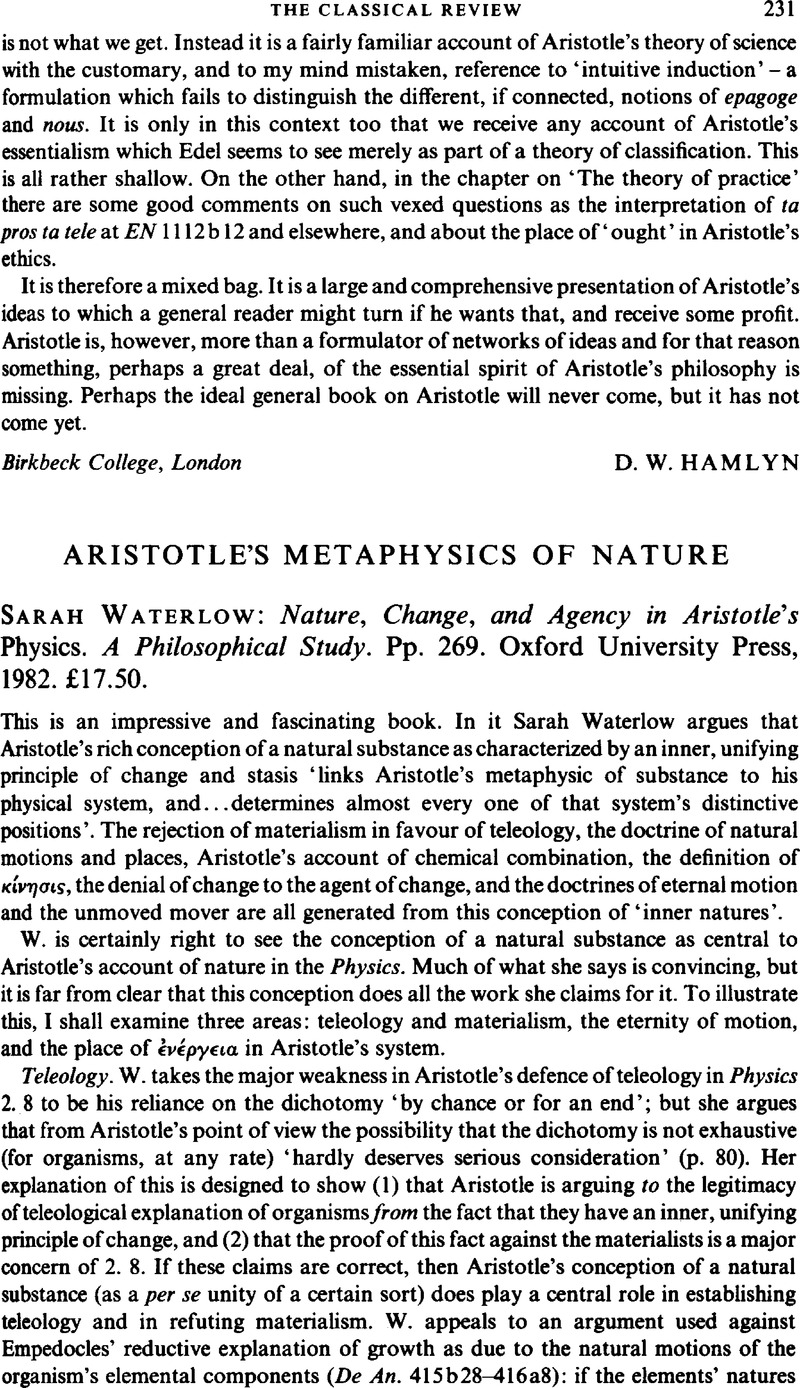No CrossRef data available.
Article contents
Aristotle's Metaphysics of Nature - Sarah Waterlow: Nature, Change, and Agency in Aristotle's Physics. A Philosophical Study. Pp. 269. Oxford University Press, 1982. £17.50.
Published online by Cambridge University Press: 16 February 2009
Abstract

- Type
- Reviews
- Information
- Copyright
- Copyright © The Classical Association 1983
References
1 That is, homoeomerous μ⋯ξεις as opposed to mere ςυνθ⋯σεις; see GC 2. 7 and Cael. 3. 3.
2 W.'s rebuttal of this does not work without a stronger appeal to ‘always or for the most part’ than her account allows; moreover, once we do allow this, the argument of 2. 8 admits of much more satisfactory interpretations. (Note that the reduction to homoeomeries would still present this challenge to the teleological nature of organisms even if the homoeomeries themselves were held to be teleological.)
3 Anaxagoras' stuffs, of course, are not quite the same as Aristotelian μ⋯ξεις; but they are close enough to suggest the same reductionist thesis – especially as they are not characterized by natural motions.
4 That Aristotle takes this constraint for granted is also suggested by his reformulation of the Timaean cosmogenesis in purely ‘physical’ terms in De Caelo 1.
5 This is why the rotation of the primum mobile fails to satisfy the definition; by rights it is an ⋯ν⋯ργεια, as Aristotle agrees at Met. 1050b 20–8. I do not understand why W. thinks that if it were an ⋯ν⋯ργεια it would be cut off from the rest of the physical world (p. 255).




